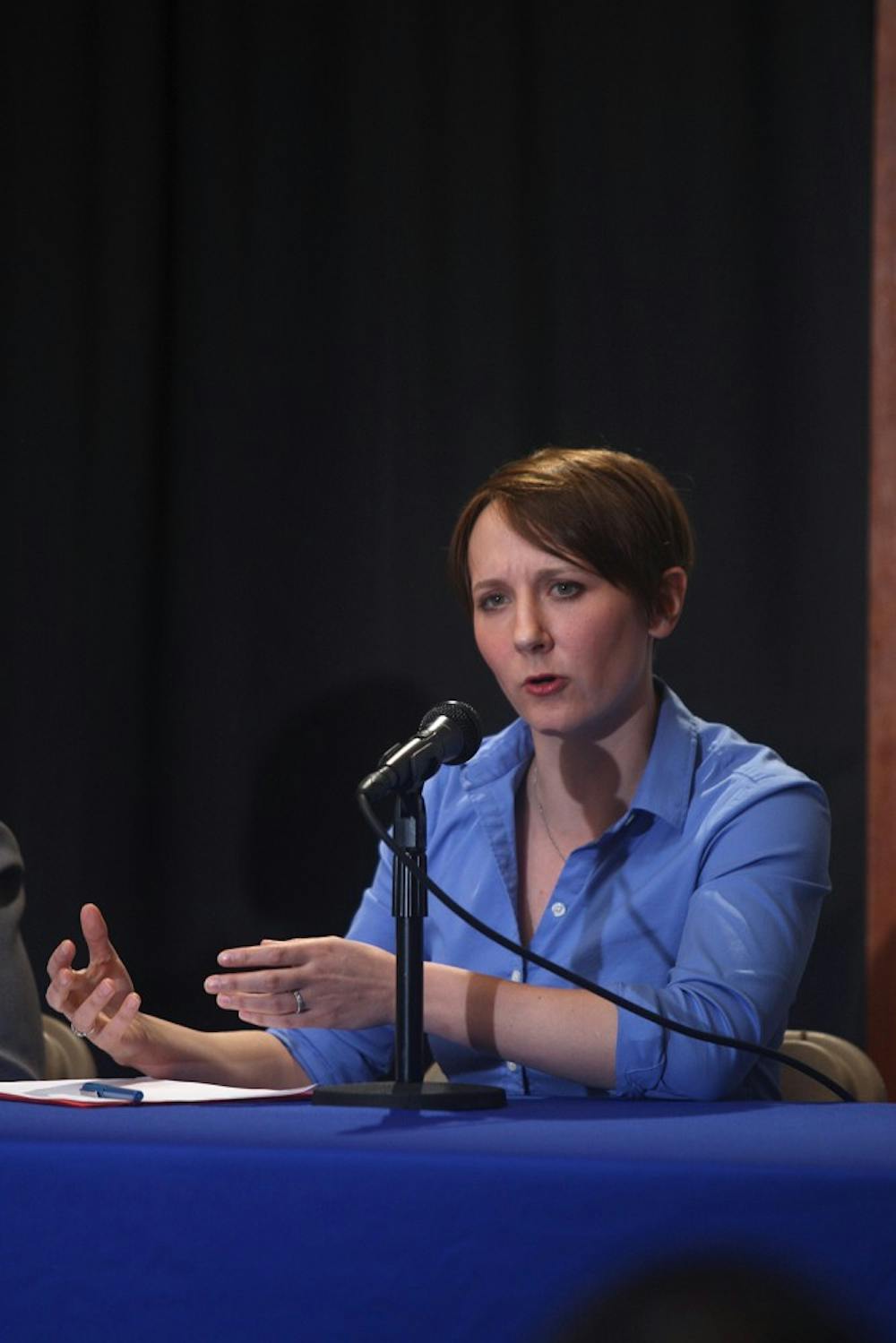Since grabbing the media spotlight in 2009, the tea party has turned into a political force, said two leading experts Thursday.
Theda Skocpol, Victor S. Thomas professor of government and sociology at Harvard University, and Vanessa Williamson, a third-year doctoral candidate in government and social policy at Harvard and former policy director for Iraq and Afghanistan Veterans of America, addressed the factors underlying the growth and influence of the tea party movement in a lecture. Skopcol and Williamson authored the book “The Tea Party and Republican Conservatism,” which was published Jan. 2.
“The impact of tea party funders and activists on the entire field of Republican candidates has been tremendous,” said Skocpol, who is the former president of the American Political Science Association.
GOP presidential candidates are in line with many tea party causes, including the fight against universal health care, hard line anti-immigration policies and extended tax cuts for the wealthy, Skocpol noted. This influence in the 2012 presidential race suggests that the tea party will have lasting role in Republican politics and policies in the future.
President Barack Obama’s victory in 2008 motivated conservatives to reinvigorate their message and political influence, Skocpol added.
“Within days after Obama’s election, conservatives who had been quite dejected following the 2008 election began to organize, network and communicate—cheered on by Fox News,” she said.
This early disenchantment fed the momentum that would aid the tea party’s rise, she noted. A combination of grassroots activists, conservative “media cheerleaders” and right-wing free market and professional advocacy groups led to the growth of the tea party. By 2010, the tea party had shifted the tone of the Republican platform and helped the party regain control of the House of Representatives.
To research for their book and explain the ideologies of the tea party movement, the authors engaged in interviews with grassroots party members throughout the country. They found that many members join the tea party for the same reasons.
Many tea party members believe the country has dramatically shifted in the wrong direction, Williams said.
These grassroots organizers fundamentally believe that some Americans are hardworking and have contributed to the system, but others are freeloaders, Williamson added. This mindset explains why tea party members are against some government programs—including welfare and universal health care—yet fully supportive of Social Security and other social programs.
The tea party’s rise also represents a generational divide in American political life, Skopcol said. As older Americans experience changes driven by a younger generation, there is a rift between the values and ideals each group holds.
“For some time to come, we’re going to a see a clash between an older America that experienced life in one way and now sees a different America experiencing changes they didn’t approve of,” she said.
Get The Chronicle straight to your inbox
Signup for our weekly newsletter. Cancel at any time.

